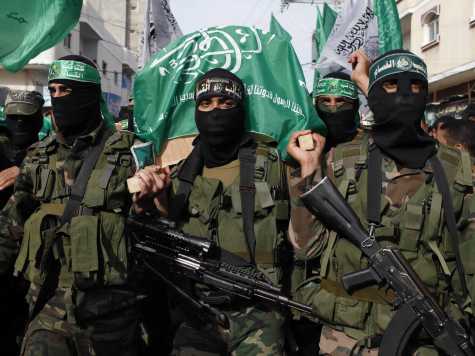 Matti Friedman
Matti Friedman
Yesterday we discussed a fascinating piece by former Associated Press reporter Matti Friedman about that news bureau’s systematic practice of collaborating with tyrannical regimes in exchange for access. Friedman offers other examples: in 2014, a “detailed exposé on the AP’s bureau in North Korea” showed that it was staffed by “North Koreans who were paid by AP but answered to the regime.” Under an agreement between the AP and the Pyongyang government, AP could “sell propaganda images, like those lovely choreographed rallies, outside the country, while the North Korean ‘staffers’ studiously avoided subjects like mass starvation and prison camps.”
 One hand washes the other: Hamas
One hand washes the other: Hamas
Meanwhile, in Gaza, where Friedman himself worked as an AP correspondent from 2006 to 2011, the AP is involved in “both passive and active cooperation with Hamas.” He offers a striking anecdote: during the Israel-Hamas war that began in late 2008, an AP reporter called Friedman, who was working the service’s news desk in Jerusalem, and told him “that Hamas fighters were dressed as civilians and were being counted as civilians in the death toll.” Some hours later, the reporter “called again and asked me to strike the detail from the story.” Friedman suspected at the time – and it was later confirmed – that his colleague had made the second call on orders from Hamas, which had threatened his life should the AP go with the full story.
“From that moment on,” writes Friedman, “AP’s coverage from Gaza became a quiet collaboration with Hamas….Our coverage shifted accordingly, though we never informed our readers. Hamas military actions were left vague or ignored, while the effects of Israeli actions were reported at length, giving the impression of wanton Israeli aggression, just as Hamas wanted.” Ironically, in 2014, when an AP reporter filed an article about Hamas censorship, it was shelved.
“We were trading truth for access,” writes Friedman, “and providing an illusion of ‘coverage’ that was actually propaganda.”
 Sally Buzbee
Sally Buzbee
Friedman quotes AP’s side of the story, as proffered by AP editor Sally Buzbee. “It is essential to cover tyrannical regimes and other undemocratic movements, when possible from within the borders they control, in order to accurately relay what is happening inside,” she said recently. But as Friedman observes. “if you’re inside the borders of a tyrannical regime, you can’t ‘accurately relay what is happening inside.’” He suggests that instead of having Hamas-controlled reporters inside Gaza, AP would be better off “working sources on the inside and making use of external players (Egyptian intelligence, Israeli intelligence, Palestinian reporters in the West Bank) to give a more accurate picture of events.” Similarly, “instead of paying for an illusory ‘bureau’ in Pyongyang and getting in bed with Kim Jong-un, why not devote that money to hiring the most knowledgeable people in South Korea and developing information from dissidents, refugees, and spies, which, in expert hands—and there are plenty at the AP’s disposal—might actually be able to yield an approximation of the truth?”
Share this:




